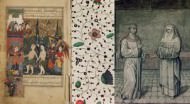
Poverty and Disability: A Medieval Jewish Perspective∗
In 1760 Rabbi Naphtali Hirsch Gössler wrote to his son in Halberstadt from his fund raising “road trip” to Amsterdam. The letter has many insightful and somewhat sarcastic remarks; in one of them Rabbi Naphtali Hirsch relates to the priorities in almsgiving common among wealthy Spanish-Portuguese Jews of the mid eighteenth-century Amsterdam Jewish community:
The Portuguese Jews here are very wealthy and they are also very generous when it comes to matters of charity and alms giving. However they prefer supporting the lame the sick and the blind rather then supporting poor scholars of the Torah. It appears that like the Jews in Poland they are well aware of the fact that there are greater chances they might become lame, sick or blind than of becoming scholars of Torah.1
Rabbi Gössler was what we, in modern day English, referred to as a professional or semi-professional fundraiser. In Yiddish, the medieval and early modern German dialect common among Jews and spoken to date by some Ultra Orthodox communities, these fund raisers are still referred to as “Schnorrers”. As such, Rabbi Gössler had enough experience in his own background to easily compare two relatively large Jewish communities in two rather distant parts of Europe from two very different backgrounds. His cynical remark rings true for it contains some fundamental truths regarding issues of poverty, charity, the social language of poverty, and the connection between poverty and physical disability. Although Rabbi Gösslar wrote in
the eighteenth century these truths reach back into the Middle Ages.
http://web.bgu.ac.il/NR/rdonlyres/9561906C-4451-47BD-8444-0F7C481E3BC8/54871/povertyanddisability2007.pdf
http://www.medievalists.net/2010/12/02/poverty-and-disability-a-medieval-jewish-perspective/











No comments:
Post a Comment